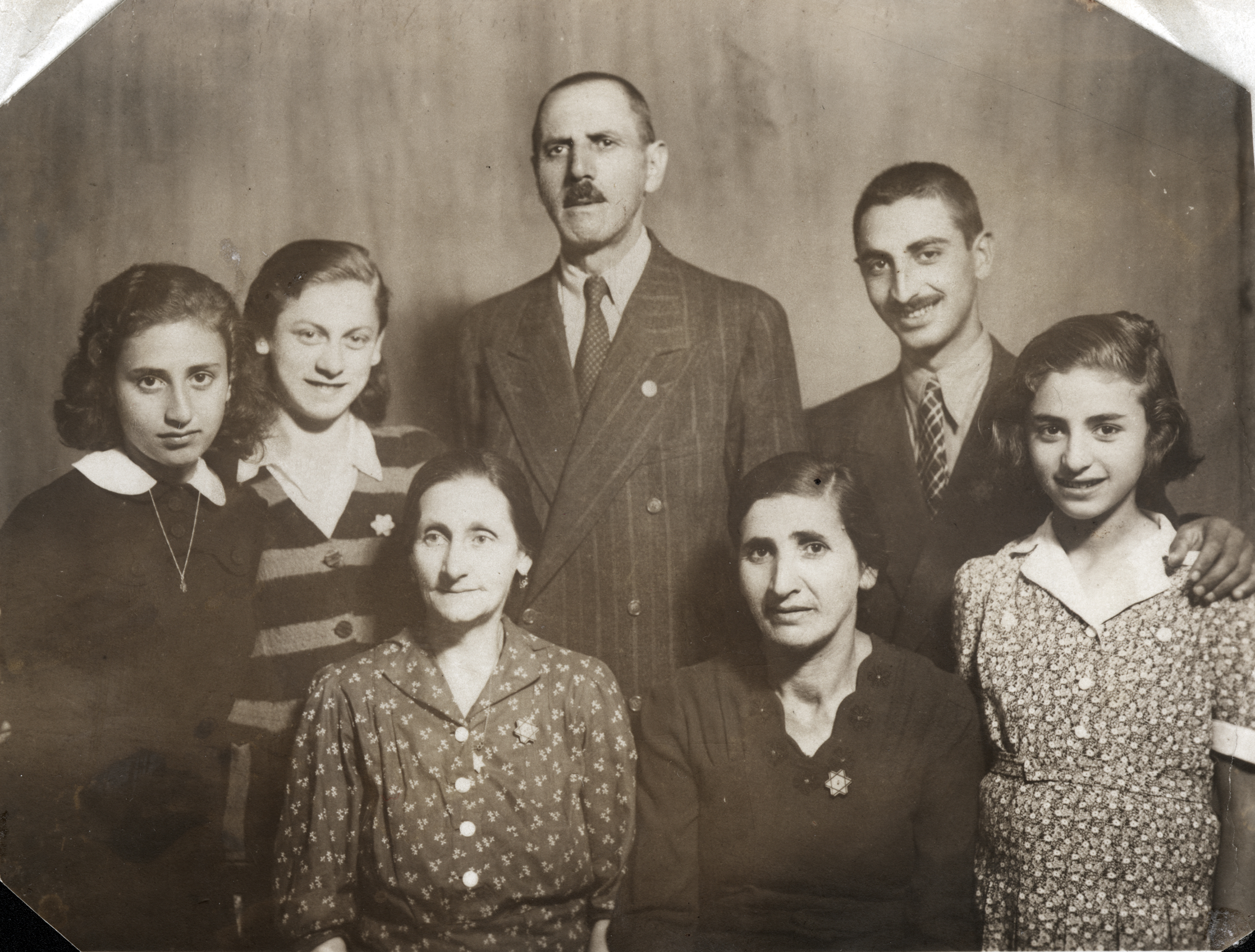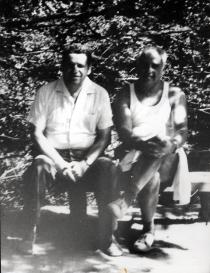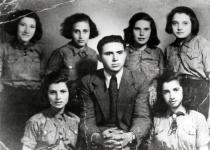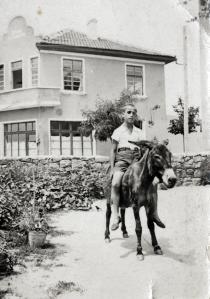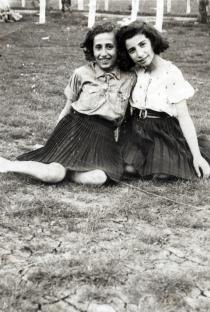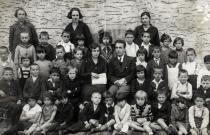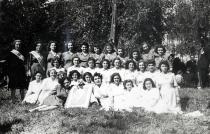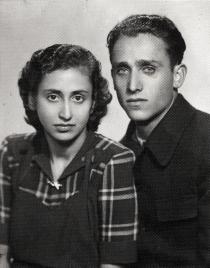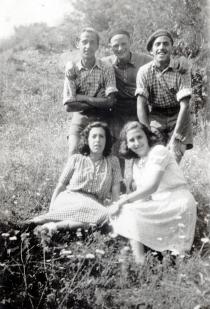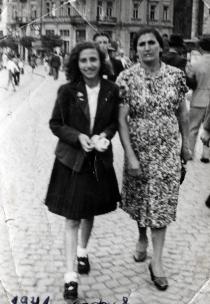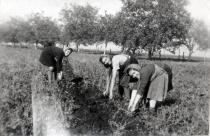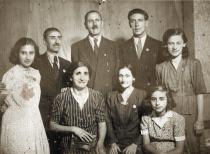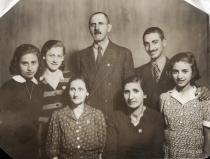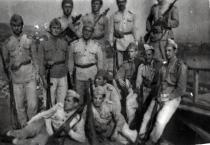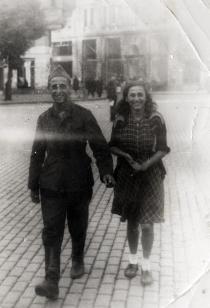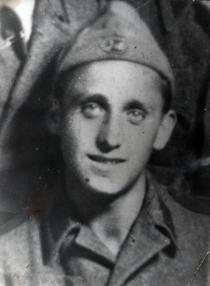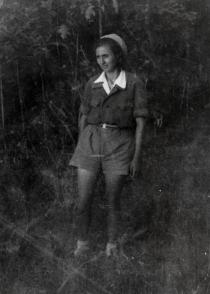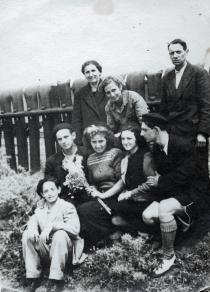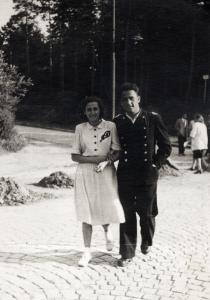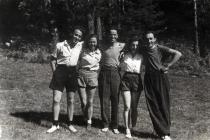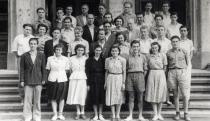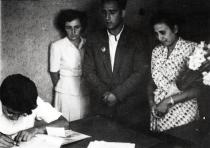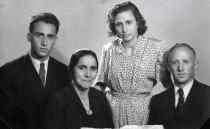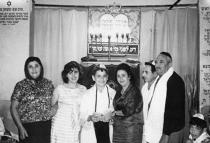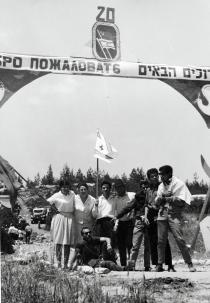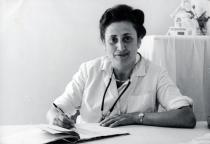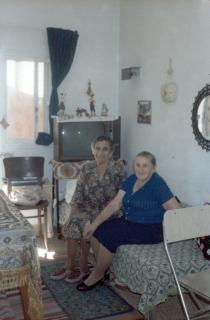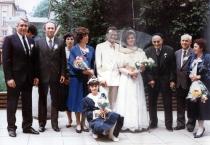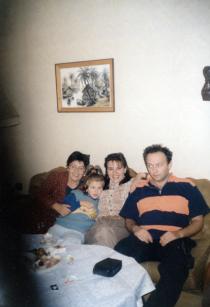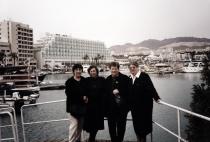This is my family, photographed in 1944. The photo was taken shortly after 9th September 1944 upon our return to Sofia. We had a picture of us taken wearing the yellow stars as a memory. My mother Rebecca Delareya, nee Mamon, is sitting in the center, first from right. My sister Eliza Eshkenazi, nee Delareya, is standing next to her. My brother Betzalel Delareya, is the young man standing first from right. He had just come back from the labor camp, that's why he is so thin and weak. You can also see one of my mother's brothers and his family here, but I don?t know their names.
When I was interned to Dupnitsa with my mother and sister in 1942-43, my brother was already in a labor camp. We had no contact with him whatsoever. We only knew that he was somewhere around Simitli. We didn't receive any letters. We were worried because he had a duodenal ulcer. He told us later that trains carrying Jews from Aegean Thrace and Macedonia to the concentration camps passed by them. Once they heard from a horse wagon people begging for water. My brother and some others jumped up with their cups, but the warders beat them up badly. Finally they poured cold water on him, in order to bring him back to consciousness. Nevertheless, they made him work after that. He was set free on 9th September 1944, like all the others.
In Dupnitsa they took us in a convoy from the railway station to the school gym. We were more than a hundred people, and they separated us in families. I found a job in the candy factory. I stole sweets for my friends in the labor camps. Then we moved to some rich Jews, who accepted us under the condition that I worked as a maid for them. They had three boys aged one to two, three to four, and five to six years. I used to work there so much that my child-like hands became completely rough. My mother was already advanced in years, she was constantly ill and wasn't able to work. I was the breadwinner. My sister was crying for food all the time. The landlords were well-to-do traders in Dupnitsa. They imported curds, butter, etc. as black marketers. My sister cried because she also wanted such things. My mother and I used to 'gag' her and hid her in the little square behind the door, which the rich Jewess had given to us. In this one square meter space we put the sack, the blankets and the clothes that we had brought from Sofia. We used to lie down crosswise like in a sty. The mattress was too short and our bare feet touched the floor.
We returned from Dupnitsa to Sofia after the fall of fascism [after the communist takeover on 9th September 1944]. From 9th September 1944 till 1945-46 we lived in the house my mother's brother had on Slivnitsa Blvd.
